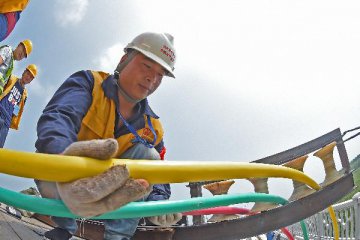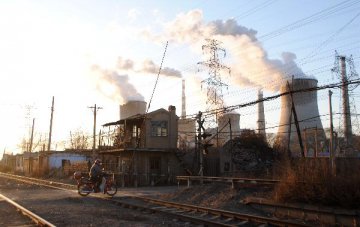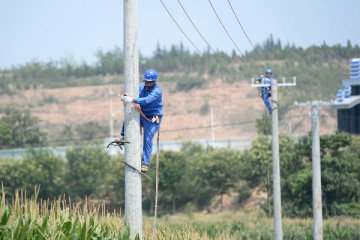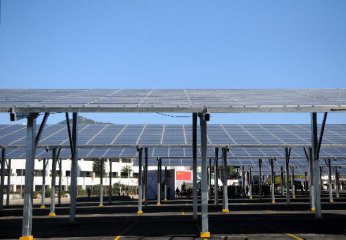BEIJING, Nov. 16 (Xinhua) -- The ongoing liberalization of China's power sector will raise business and financial risk for coal-fired power generation companies, but most can withstand the resultant market competition and potential industry consolidation, according to a report by credit rating agency Moody's provided to Xinhua.
The government introduced a market-based power sales mechanism in 2016 for all power generation companies and a new tariff mechanism for coal-fired ones effective January 1, 2020.
The measures form part of the ongoing reforms in the power sector to bring competition, increase market efficiency and improve the pricing mechanism.
"The immediate impact on most coal-fired power generation companies will be manageable, as the new tariff mechanism, if implemented as planned, will remove delays in passing through tariff adjustments and thus reduce margin volatility," says Ivy Poon, Moody's vice president and senior analyst.
Moreover, the already narrowing spread between the unregulated and regulated tariffs suggests rational market competition and modest margin compression when the power market further deregulates in 2020, Poon added.
While the share of market-based sales has been rising over the past three years, tariffs under the mechanism are lower than the current regulated tariffs, reducing profit margins, according to Moody's.
The new tariff mechanism will only further increase exposure to market-based prices, with any tariff reductions resulting from lower coal prices likely to pressure profit margins.
Among the rated coal-fired companies, Moody's says those with strong market positions, efficient generation fleets and large business scales will be better placed to manage the increase in competition as China's power market opens up.
By contrast, small power generation firms with weak operating and financial profiles will be more vulnerable because of the growing market competition under the new tariff regime, the report added.























Latest comments